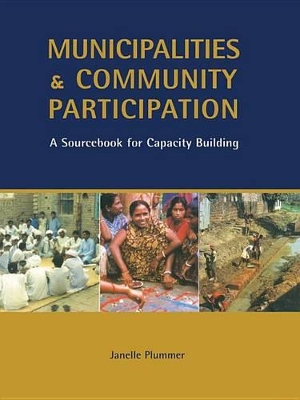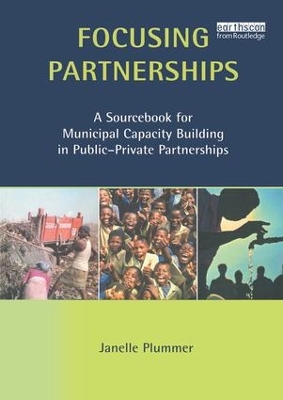Municipal Capacity Building
2 total works
'Among all the literature on participation, this is the first book I know that focuses on municipal authorities. It... also has particular importance both for higher levels of government (at national or provincial/state level) and for international agencies. Firstly, it is a reminder of the importance of well-functioning municipal governments for reducing poverty. Secondly, it is a rich source of case studies and analysis about how municipal authorities can incorporate one central component of 'good governance' - a permanent, participatory engagement with their citizens'
From the Foreword by David Satterthwaite, Director, Human Settlements Programme, International Institute for Environment and Development
Increasingly, governments and donors are advocating the participation of poor communities in the delivery of urban services and infrastructure. Yet local authorities responsible for implementing participatory policies often do not have the skills, organisations or resources needed, or an adequate idea of the capacity required. This sourcebook provides invaluable practical guidance for municipal officials, and others working in urban development and poverty reduction, on the range of issues to be addressed in planning and managing cities with community participation. It explains the key elements of participation, identifies common constraints and opportunities, describes the vehicles for moving participation forward and outlines the capacity building needed for a municipality to achieve participatory goals.
Despite the increasing occurrence of policies aimed at mobilising the financial and human resources of the private sector, most urban local governments responsible for urban basic services in the South do not have the capacity to initiate and sustain partnerships. Nor do they understand how they can create partnerships that target the poor. This sourcebook provides practical information and guidance to do so.
With extensive illustrative material from Africa, Asia and Latin America, it sets out a strategic framework for building municipal capacity to create pro-poor partnerships. It focuses on implementation rather than policy. It locates private sector participation within the broader urban governance and poverty reduction agenda. And it is above all concerned to supply information on the issues and processes involved in making the public?private partnership (PPP) approach appropriate for service delivery in developing countries.
The second in a series of capacity-building sourcebooks, it will be invaluable for those concerned with the capacity of local levels of government: policy-makers, municipal authorities, development agencies and practitioners, and all those involved in urban governance and poverty reduction.

